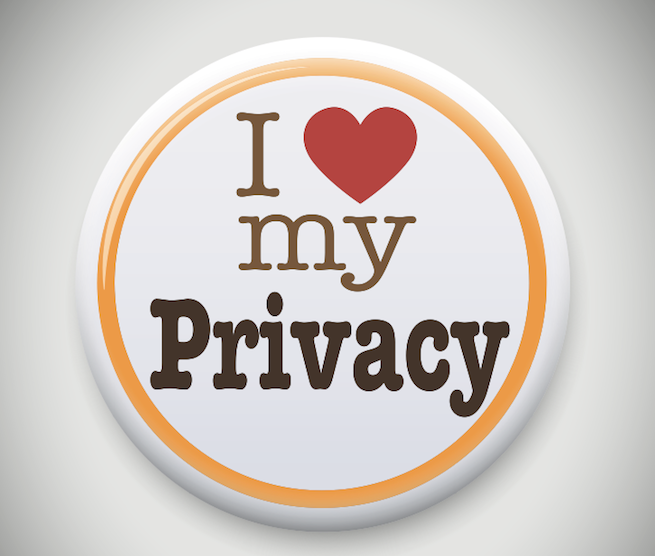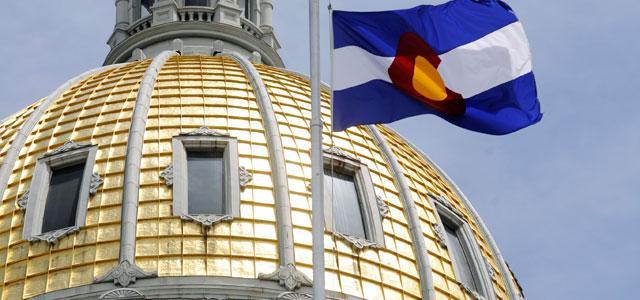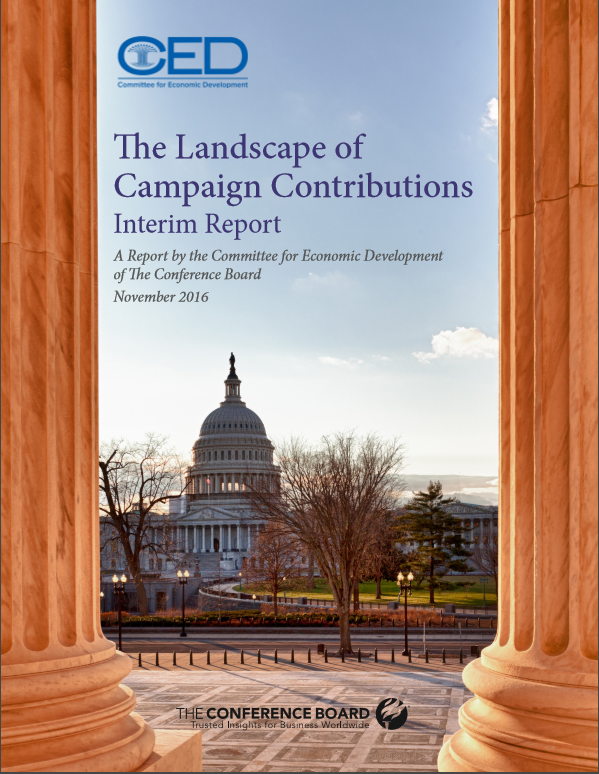Since our nation’s founding, the right of every American to freely support the causes they believe in has been paramount. Unfortunately, this right is increasingly threatened by way of excessive government reporting requirements that silence many individuals and groups.
Throughout our country’s history, privacy has been a necessary component for many Americans to feel comfortable speaking out on contentious issues in our ongoing civic debate. Even 250 years ago, the Founding Fathers recognized the importance of protecting free speech and expression, including the right to speak anonymously. Unfortunately, the use of disclosure as a weapon to silence speakers one disagrees with is also nothing new. For example, this tactic was often employed by those seeking to preserve the status quo during the Civil Rights Movement to intimidate and silence activists by revealing their private information. The Supreme Court, long recognizing this threat, has ruled multiple times to uphold privacy protections for political speech and association.
Nonprofit groups play a vital role in educating and increasing the range of information available to all Americans, as well as opening debate on new issues across the ideological spectrum. Groups attacked for proposing policies that challenge the status quo today could easily be part of mainstream civil society down the road. Donor privacy ensures citizens don’t have to fear retribution for contributing to organizations working on issues they are passionate about.
Proponents of greater regulation of political speech often argue more disclosure will lead to a more transparent and better-managed government. However, stringent reporting requirements actually chill speech and limit the breadth of voices that can or are willing to speak out on issues. Isn’t it interesting that the very laws intended to expose government corruption actually make it harder for watchdog groups to, well, expose government corruption?
In certain circumstances, such as with donations to candidates, political parties, and PACs, the government has a compelling interest for requiring the disclosure of donors’ identities; namely, to prevent corruption. Importantly, those individuals who give to such entities are keenly aware that their contributions will be used for a political purpose. Today, all spending calling for the election or defeat of candidates triggers some level of disclosure. Americans who contribute as little as $200 to a federal candidate, party, PAC, or super PAC have their name, address, employer, and occupation handed over to the government and published in a permanent and public online database.
But the compelling interest for disclosing donors to candidates and political committees disappears for groups with a broader, non-primarily political mission. In the 1976 landmark case Buckley v. Valeo, the Supreme Court ruled that only those groups primarily organized for the purpose of influencing elections may be regulated as “political committees,” striking down provisions in the Federal Election Campaign Act that required disclosure for issue speech. Proposals to expand disclosure regimes to cover groups engaged in issue speech defy one of Buckley’s key holdings.
Groups primarily interested in speaking on policy rather than elections should be free to participate in that debate without having to worry about filing a litany of campaign finance reports and without being forced to turn over the private information of their members and supporters. Only groups with a primary purpose of influencing elections can properly be required to report the private information of their supporters to the government.
One of the major problems with overly broad disclosure is a practical one. Facing an already complex web of regulation, disclosure adds further monetary and regulatory hurdles that nonprofit groups must overcome. These laws disproportionately harm smaller, grassroots organizations that don’t have the financial means to hire expensive lawyers and accountants to ensure they stay within the bounds of the law. Due to this labyrinth of red tape, many groups choose to not speak at all if the burden of compliance is too much to shoulder.
In addition to very real compliance concerns, when disclosure requirements are imposed upon citizen groups, it begs the question what purpose the information serves. If the justification for disclosure is to expose corruption (or its appearance), it’s difficult to argue that requiring disclosure of those who support groups that primarily speak about issues accomplishes this goal. Citizens give to groups in support of their overall mission – not to support a particular communication or statement a group makes. We call this “junk disclosure” – information that actually misleads the public by associating individuals with communications that they likely have no knowledge of and may actually disagree with while simultaneously doing real harm to the privacy of citizens who wish to give to the causes of their choice.
Our work provides the opportunity to better understand how these burdens affect real people’s lives. For years, we assisted Diana Hsieh (now Diana Brickell), a doctor of philosophy, who got tangled up in Colorado’s arcane “disclosure” laws. In 2012, Diana established a two-person nonprofit and sought to raise no more than $3,500 to update and publish one of her academic papers. Despite such minimal educational activity, she was forced to file onerous reports on strict deadlines like a professional political committee because just one line in her paper expressed opposition to a Colorado ballot measure. Without the resources of a well-funded outfit able to afford expensive attorneys, Diana struggled immensely to meet the state’s regulations until her First Amendment rights were finally vindicated in court.
Unfortunately, Diana’s experience with Colorado’s burdensome disclosure laws represents just the tip of the iceberg. Besides the regulatory nightmare disclosure requirements create for individuals and organizations, breaches in donor privacy also constitute a real threat, and there are plenty of citizens and groups who can attest to this reality.
In today’s age of hyper-partisan politics, being outed as a supporter of a controversial organization or cause invites harassment. Just ask Brendan Eich, former CEO and co-founder of Mozilla, who was forced out after his $1,000 donation to a California ballot measure prohibiting same-sex marriage was revealed six years later. In 2010, civilians who supported the policies of Governor Scott Walker had their homes raided by police and were slapped with subpoenas demanding access to their private information – not to mention gag orders preventing them from publicizing their ordeal. Thankfully, Wisconsin’s Supreme Court intervened and declared this witch-hunt unconstitutional. Regrettably, countless citizens can tell stories of disclosure information being misused for nefarious, partisan, or simply misleading ends.
One need only look to the text of the First Amendment to understand that the rights of all citizens to associate with other like-minded individuals and speak as a group are essential to American democracy. But, what is often forgotten (or ignored) is our right to speak and associate privately. Thomas Paine wrote his tremendously influential pamphlet, Common Sense, anonymously. The Federalist Papers, authored by Alexander Hamilton, James Madison, and John Jay, were all written under the pseudonym Publius. Facing an all too real threat of British persecution and with the clairvoyant understanding that their message – and not the messenger was paramount – these men understood the importance of upholding privacy. Fortunately, their fellow citizens had the good sense to engage with the merits of their arguments anyway.
Contrary to many stories on the news, or comments made by those who want to further regulate speech, the U.S. already has a functioning and expansive system of disclosure rules and regulations. Those who oppose privacy in political speech often resort to labeling nonprofit groups as “dark money” organizations as a scare tactic to drum up support for additional disclosure laws.
Not only is the term intentionally misleading, but it’s also way off the mark. Consider that, since the 2006 election cycle, nonprofit groups have never accounted for more than 4.9% of overall federal political spending. Typically, these so-called “dark money” groups are actually well-known organizations like Planned Parenthood, the League of Conservation Voters, the National Rifle Association, or the Humane Society, and voters know what these organizations stand for. Those that don’t can easily search the internet or the websites of individual organizations to learn more about their origins and viewpoints.
Instead of vilifying our vibrant civil society, we should welcome the trend of Americans joining together, pooling their resources, and speaking out about the issues that matter most to them. Robust civil discourse and a healthy democracy rely on the ability of Americans to freely support the causes which they are passionate about. Calls for groups to disclose their donors’ private information and abide by complicated reporting requirements significantly inhibit that process. That’s why today, just as it was over two-and-a-half centuries ago, donor privacy is essential to free speech.














